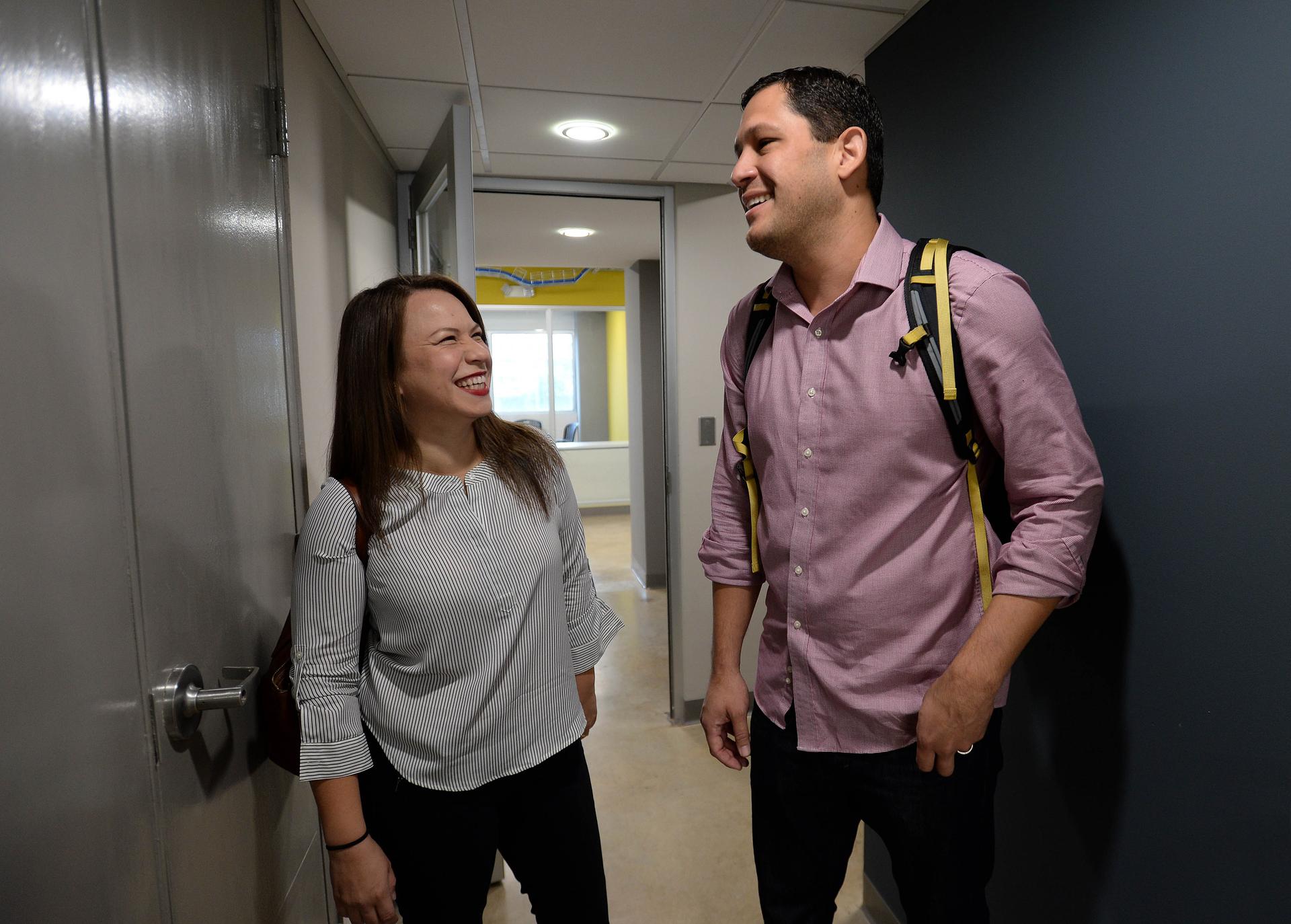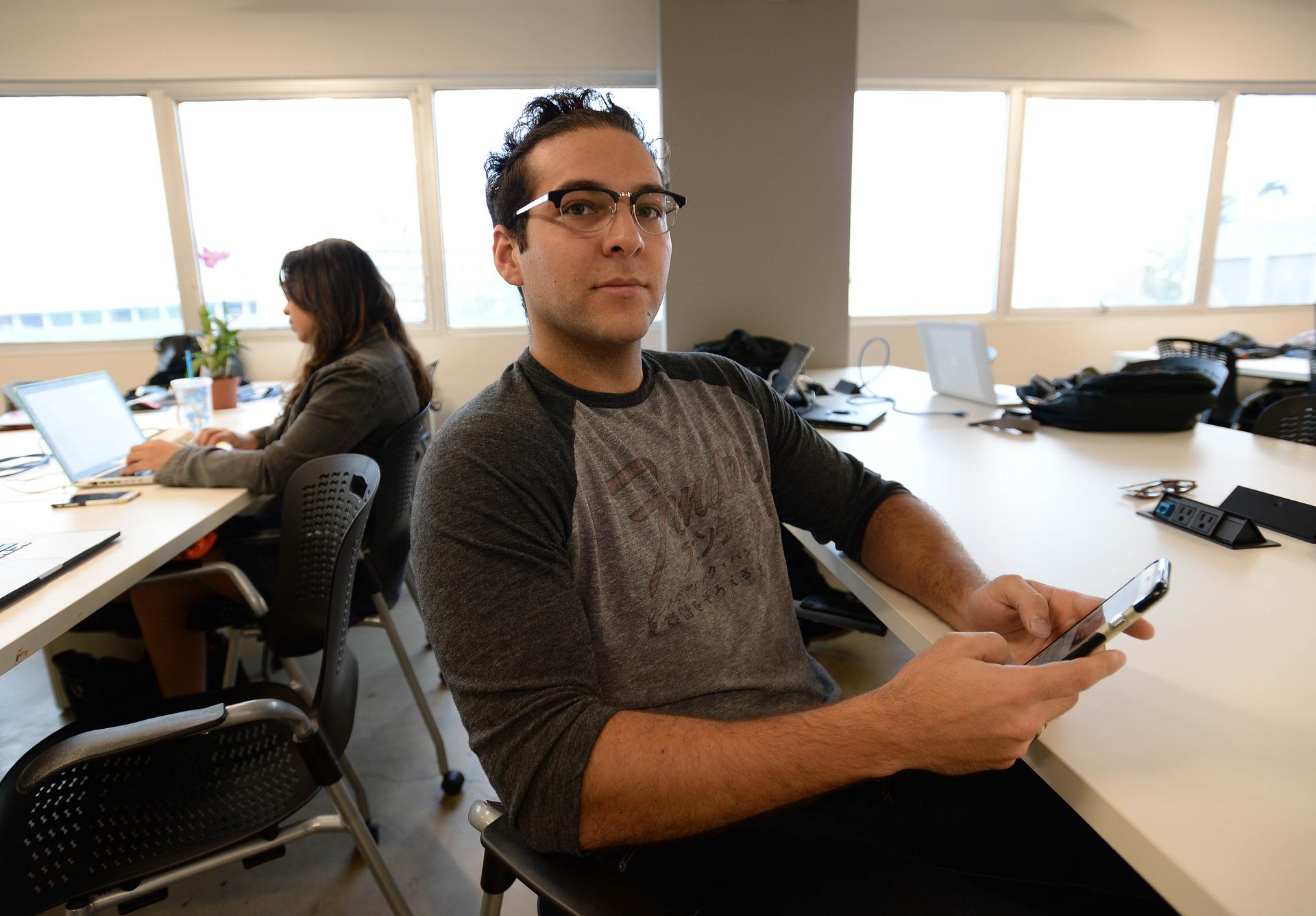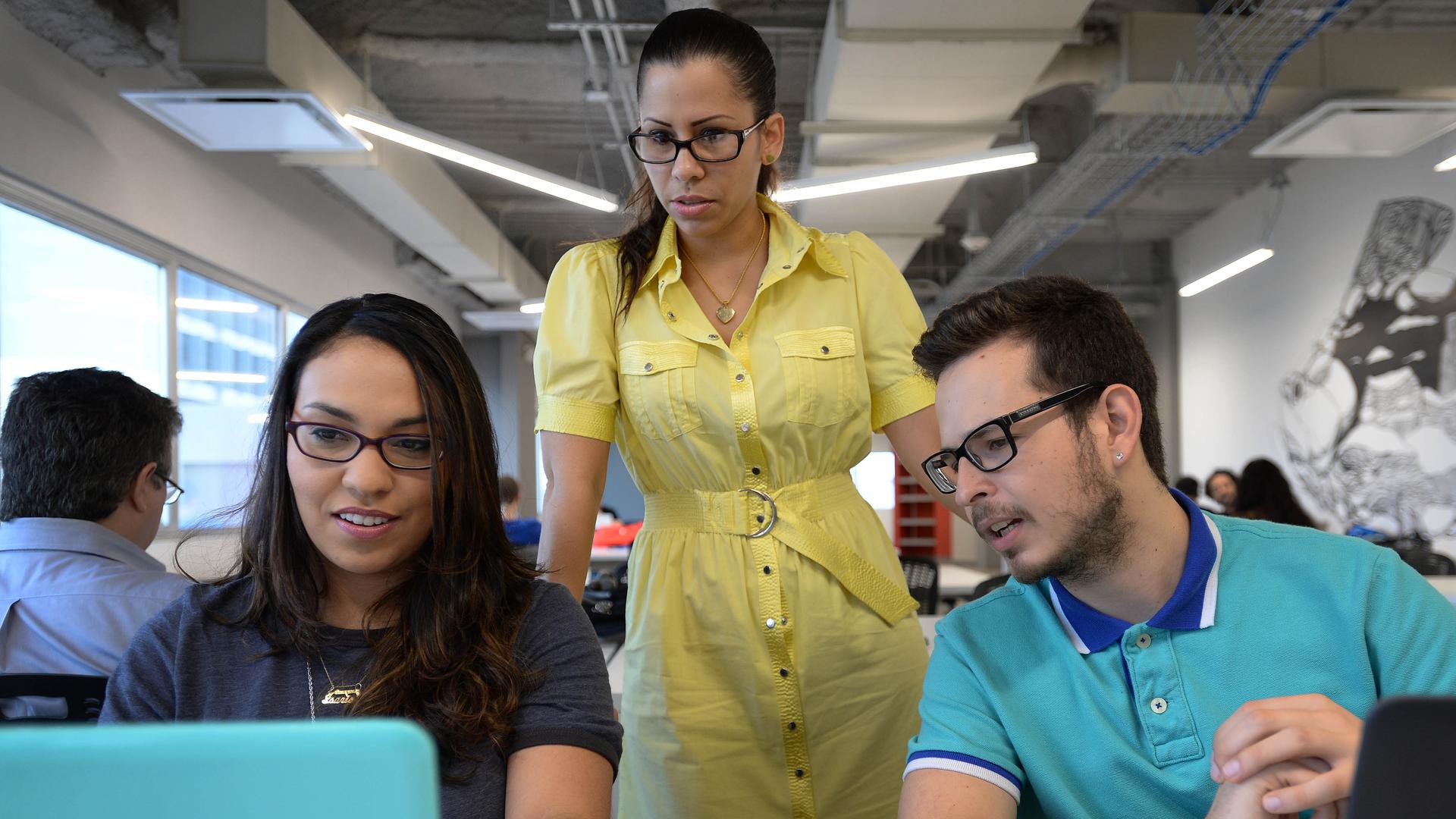Entrepreneur Vivian Vargas (center) chose to start her business in Puerto Rican to be closer to Latin American markets.
José Lebrón and Sheilla Torres had heard the news from Puerto Rico: hospitals aren’t being reimbursed, schools are closing, the official unemployment rate is close to 12 percent, and poverty stands at 45 percent. But a year ago they decided to move back to their island anyway.
“When we moved here that was one of our worries, are we going to move back here to the island where there is a government crumbling down?” Lebrón said.
Still, the two engineers left good jobs in the aerospace industry in Connecticut. They’ve found that some of the stories of demise in Puerto Rico are spot on, some overblown.
“Yeah, the government has a lot of debt, but it’s still working,” said Lebrón. “The water is still flowing, the power is still going.”

Lebrón and Torres grew up in Puerto Rico, went to college on the island, then earned PhDs in New York state. They’ve come back home to design light, small solar water heaters. They named their company Sunne Cleantech Lab.
“It has ‘lab’ in the name because it’s intended to be a product development company of clean energy technologies,” Torres says. “And here on the island, there’s not a lot of jobs in terms of product development. And what we want to do is offer all of those very good, talented engineers an option to stay on the island and learn what they would learn if they go to the States.”
The island has lost more than half its manufacturing jobs since 1996, and Puerto Rico is experiencing a brain drain — more than 10,000 Puerto Ricans are emigrating each month, among them doctors, engineers, and other professionals.
Congress is working on a plan to address Puerto Rico’s debt crisis — the island’s government owes investors $70 billion that it says it can’t pay back. But many argue Congress’ plan doesn’t attack the root of the problem: the economic malaise.
Lebrón and Torres are part of a small crop of young Puerto Rican entrepreneurs who are moving back. The two engineers say they’ve come back because they’re proud to be Puerto Rican and want to rebuild their home. They say they also feel a sense of responsibility as highly educated young professionals.
“Oh yeah, that’s definitely every day on my mind. And I think about it all the time,” said Lebrón. “I think it’s a responsibility for me to give back.”
They add that the island also offers a small, contained market to test their product. It’s easier for them to work there, they know the culture and how to get things done efficiently.
Puerto Rican Vivian Vargas also found her native island to be a better launching spot for her company, Burea, an app that rewards customers for uploading shopping receipts — basically, couponing through your phone.
Vargas has never lived in the US, but she worked for a major US multinational and had opportunities to work on the mainland. But she said she’d rather be starting her own venture in San Juan, as opposed to San Jose, California.
“We see that in Latin America, there is no one doing something like this, so it was a no-brainer for us, not to compete with the US companies,” Vargas said.
She’s launching her company from within a brand new shared workspace in San Juan, a business accelerator called Parallel 18.
Thirty-six companies moved in there in April and can stay five months before a new crop arrives. The start-ups get free work space and $40,000 in seed money from the Puerto Rican government and a local NGO, Puerto Rico Science, Technology & Research Trust.
The young companies at Parallel 18 come from Puerto Rico, but also the US and Latin America. It's the island's first accelerator to focus on both international and local start-ups, the idea being to foster global business connections.
“We invite mentors every single week so they can teach the entrepreneurs about specific things they can do, so they can grow their businesses,” said Parallel 18’s executive director Sebastian Vidal.
Many of these mentors are also potential investors. It’s a big opportunity for a young company to raise cash, although it would be much easier for, say, a video game company to network in tech-hubs like Austin, Boston or the Silicon Valley.
Michael Hoyos, 28, has moved into Parallel 18. He recently founded Space Rhino Games, a company that’s building a multi-platform video game, Breach Arena.

Every day, reporters and producers at The World are hard at work bringing you human-centered news from across the globe. But we can’t do it without you. We need your support to ensure we can continue this work for another year.
Make a gift today, and you’ll help us unlock a matching gift of $67,000!
